Books

GET TO THE FUTURE
This book reviews the operating logic of decision centers in the country and the world, and reveals how the knowledge and economy of innovation can completely revolutionize Argentina. How to achieve innovative mentalities at the height of ever deeper transformations? Does today’s historical state-market dichotomy make sense, or do Argentines need more (and better) of both?

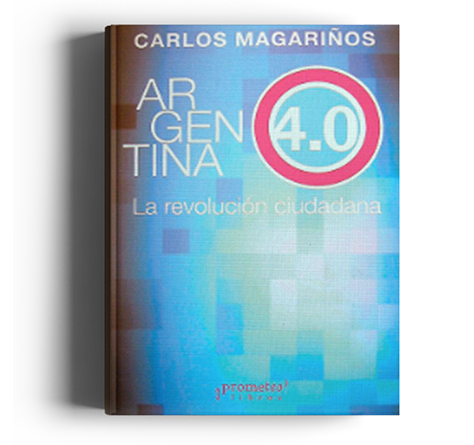
ARGENTINA 4.0 THE CITIZEN REVOLUTION
Through this book, Carlos Magariños proposes a “great society” in which empowered citizens shorten the gap with their representatives, institutionalizing the new policy in a new way of exercising power, more open, direct and participatory.
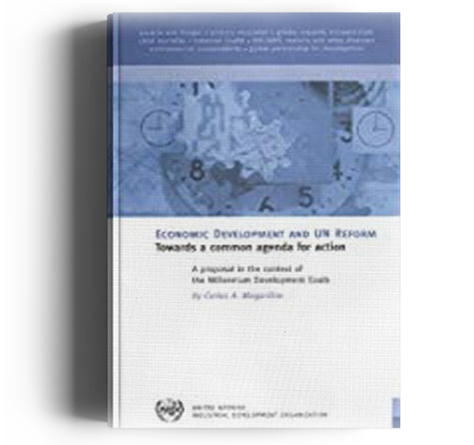
ECONOMIC DEVELOPMENT AND UN REFORM
(DESARROLLO ECONÓMICO Y REFORMA DE NACIONES UNIDAS)
From his position as Director General of UNIDO, Carlos Magariños offers a practical proposal to increase the political coherence and operational efficiency of the United Nations system in the field of economic development.

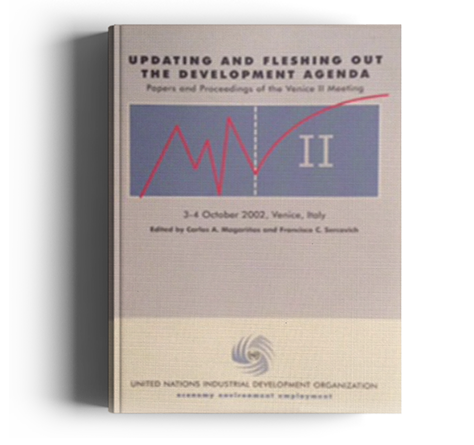
UPDATING AND FLESHING OUT THE DEVELOPMENT AGENDA
(ACTUALIZANDO Y ENRIQUECIENDO LA AGENDA PARA EL DESARROLLO)
Contributions and Procedures of the Venice II Meeting, organized by Carlos Magariños. He stregthen the case for a new development agenda arguing that in a large number of countries -where the majority of the population barely earns the minimum wage to survive-, the success or failure of the economic agenda strongly determines the fate of the political agenda, the quality of the democratic system and the social potential for growth.
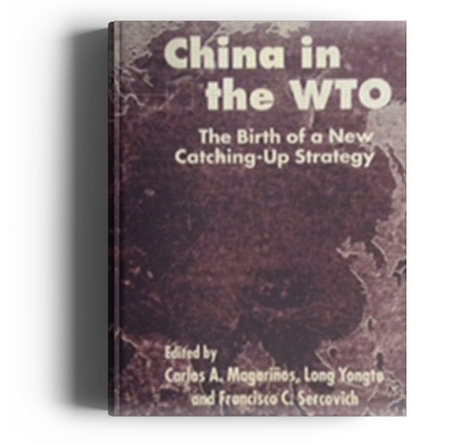
CHINA IN THE WTO
Carlos Magariños analyzes, along with Long Yong Tu – China’s chief negotiator for access to the WTO – and Francisco Sercovich, China´s entry to the World Trade Organization and its consequences for that country, the system multilateral trade and the global economy.

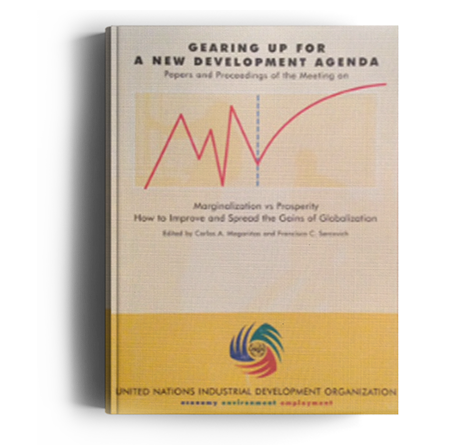
GEARING UP FOR A NEW DEVELOPMENT AGENDA
(HACIA UNA NUEVA AGENDA PARA EL DESARROLLO)
This book contains the keys to the meeting held by UNIDO on Marginalization vs. Prosperity, which took place in Venice, Italy, in 2002. Carlos Magariños promotes the debate by convening a select group of outstanding leaders from the private sector, government and international organizations, as well as academics from Africa, Asia, Latin America, Europe and the US.
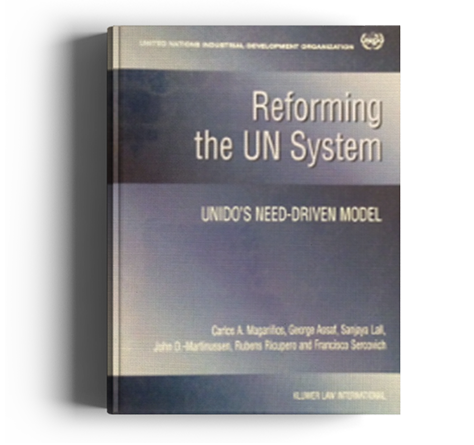
REFORMING THE UN SYSTEM
(LA REFORMA DEL SISTEMA DE LAS NACIONES UNIDAS)
This book examines the main arguments, for and against, reforming the multilateral development system, paying particular attention to international industrial development during the post-Cold War era and the challenge rised by the arrival of a new century.


THE ROLE OF THE STATE AND INDUSTRIAL POLICY IN THE ’90s
From a perspective of contemporary analysis, it is possible to highlight a dilemma common to all forms of social organization: How does the State commit individual liberties in pursuit of the defense of the rights of the whole? Carlos Magariños proposes to analyze this balance by associating the structural transformation of the economy with the long-term needs of social development.

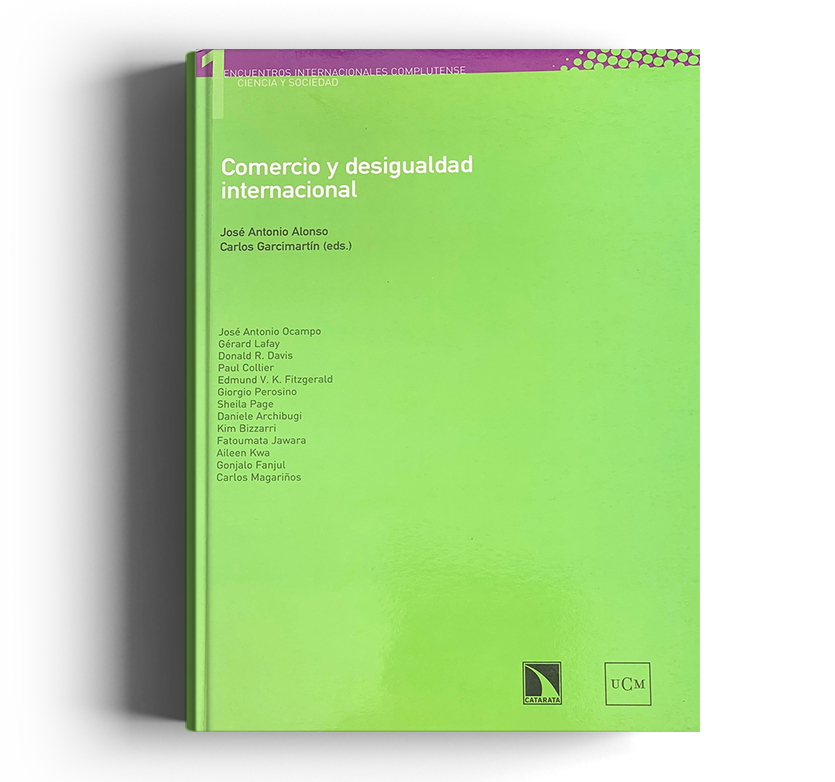
INTERNATIONAL TRADE AND INEQUALITY
Contributions to books
This pioneering book (2005) raised the need to study the role of trade in development strategy, the possibilities of the poorest countries to take advantage of it and the opportunities and risks of the WTO’s regulatory framework. Carlos Magariños contribute the epilogue; “The last frontier in the fight against poverty”.
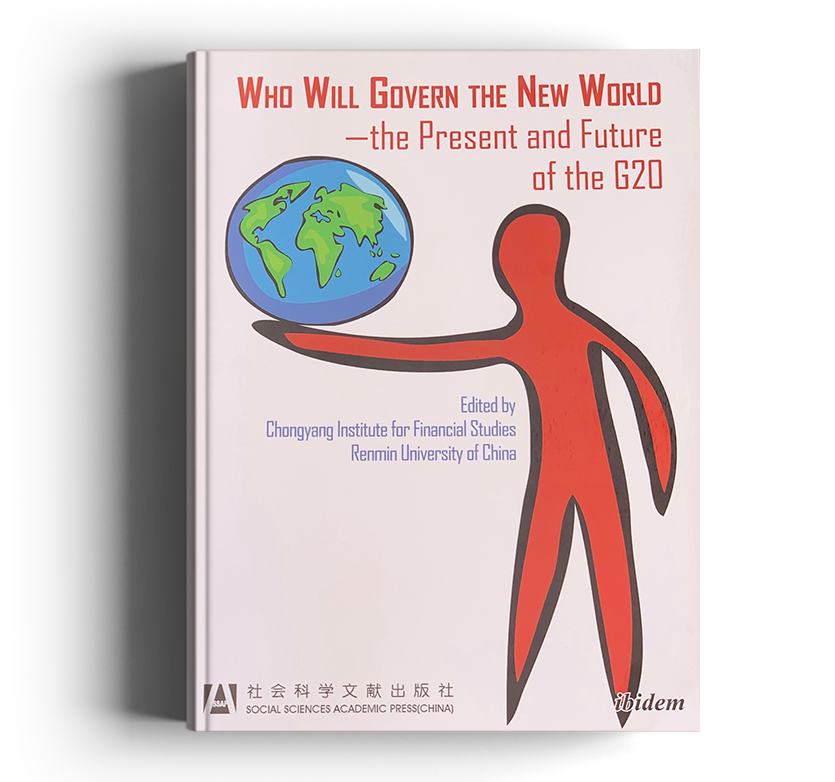
WHO WILL GOVERN THE NEW WORLD
Contributions to books
